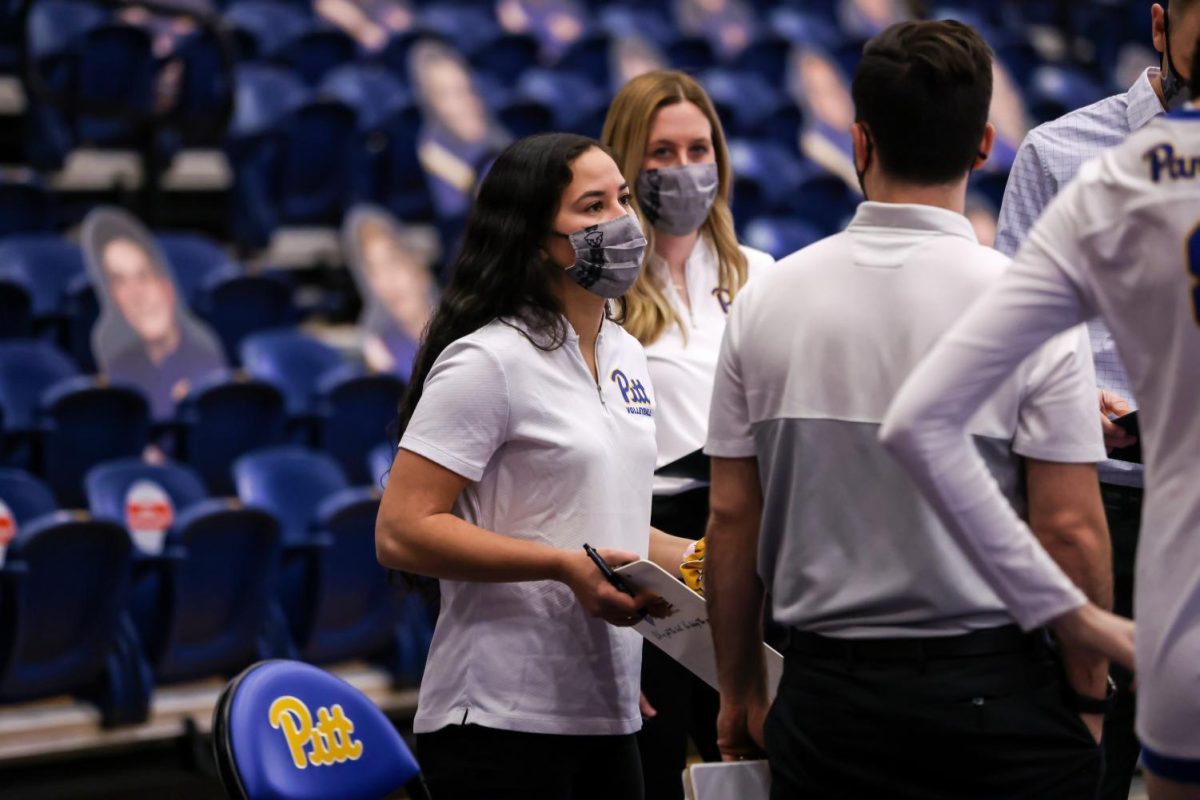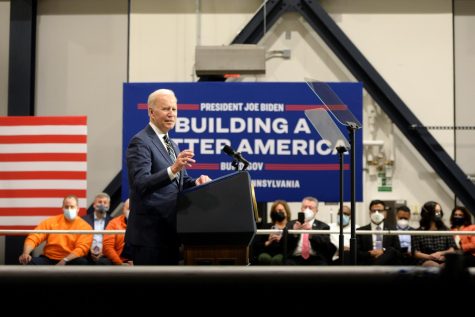Stamatakis: Bipartisanship not always a cure all
October 22, 2012
Many see Pittsburgh’s current transformation from dirty steel town to a model-mixed economy as resulting from the plans of far-sighted thinkers in the mid-century.
Two figures in particular, a Republican and Democrat, teamed up in the 1950s to clean up the city. Businessman Richard Mellon and Mayor David L. Lawrence joined together, putting aside partisan differences to clean the air, modernize infrastructure and create the seeds of today’s diversified economy.
Everybody yearns for these days again. We want Democrats and Republicans to put aside partisan differences and work together. End the ugliness of arguments. End the silly pursuits of short-lived political victory.
If only our modern political leaders could work together in the manner of Lawrence and Mellon, we’d get a chance at solving some of the big issues we face.
But before you get too nostalgic, it’s important to point out that these far-sighted planners also nearly destroyed the city. While Point State Park and the move toward cleaner air were successes, the bipartisan glow of the mid-century produced dozens of disastrous projects and came close to producing dozens more.
In fact, modern Pittsburgh is the success it is today not because of bipartisan long-term planning, but because after the dramatic projects of the 1960s, civic groups, budget constraints and Pittsburgh geography stopped more dramatic transformations from allowing the bulldozing of large swaths of the city.
After all, city planners wanted to do much more than revitalize Allegheny Center, East Liberty and the Lower Hill District — three projects that devastated urban communities. Had bipartisan camaraderie won all, the city would be unrecognizable.
The Strip District, one of Pittsburgh’s greatest assets, would have been packed up, with distributors and warehouses forced to relocate to McKees Rocks, just west of city limits. In its place would be a 1960s-style tower city development: a sterile, and likely blighted, collection of towers set apart by parks. Station Square would have met a similar fate.
Highways would have ripped through some of the city’s greatest neighborhoods. The proposed Oakland Crosstown Freeway would have sliced Lawrenceville, Oakland and the South Side across the Birmingham Bridge — bye bye, Tiki Lounge.
Buoyed by a network of highways, Pittsburgh might have suffered the fate of other Rust Belt cities: a desolate urban core surrounded by satellite cities.
This fate could be considered the true effects of unmitigated bipartisanship. When Republicans and Democrats get together — or, as in more recent years, when Democrats rule unopposed — good things might happen, and debates might be more civil. But just as often, hubris can form, which pushes out common sense and realistic expectations.
Today’s success, and its reason for existing, brings us to the most important lesson of the Pittsburgh experience: A strong and vocal civic community is just as important as bipartisanship. Beginning with the Pittsburgh History and Landmarks Foundation, co-founded by Arthur Ziegler Jr. in 1964, civic groups in the city have been some of the most annoying in the nation, dutifully challenging the city and Urban Redevelopment Authority when it has proposed to tear down half the city.
In other words, you don’t want things to work too well. In this way, Pittsburgh was blessed with its greatest asset: a collection of hills and valleys unable to be easily and cost-effectively converted into a network of highways. Relatedly, the heavy industry in the area had no incentive for large road construction, with rails and rivers being enough to move raw materials.
The bipartisan coalition was thwarted by businesses and geography. This is why Pittsburgh survived a round of potentially disastrous renewal projects.
So when you look at the national landscape and see Republicans and Democrats at each other’s throats, with SuperPACs unleashed by Citizens United spending millions to influence elections, you might see a lot of bad. This is somewhat justified; a lot of arguments today are meaningless rhetorical conflagrations.
But if Pittsburgh is any guide, all that messiness can at times be better than blissful bipartisanship. While we might want a more benign, less messy political scene, we shouldn’t just pretend a couple of handshakes are all we need in Washington and Harrisburg.
Write Nick at [email protected]







